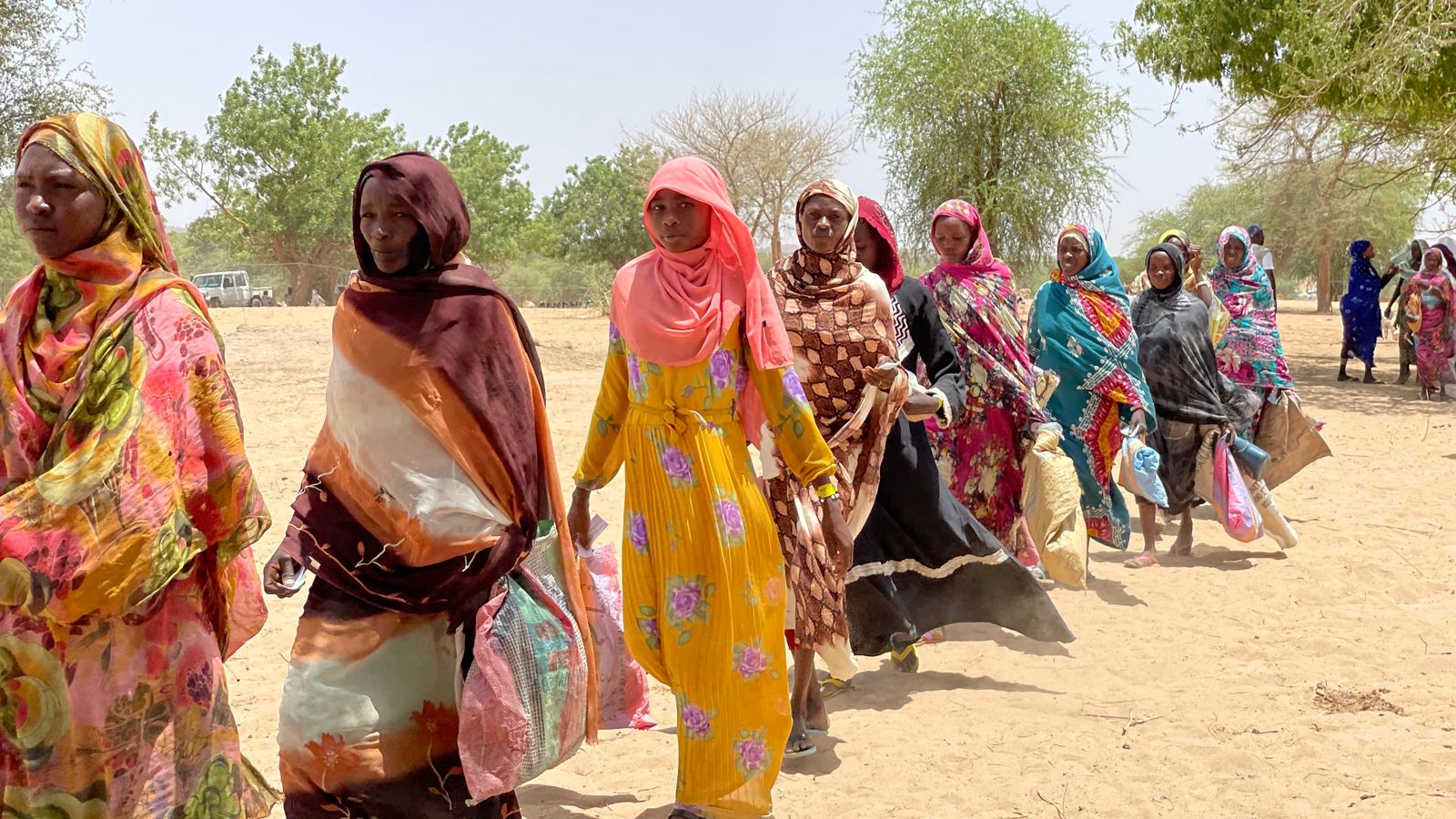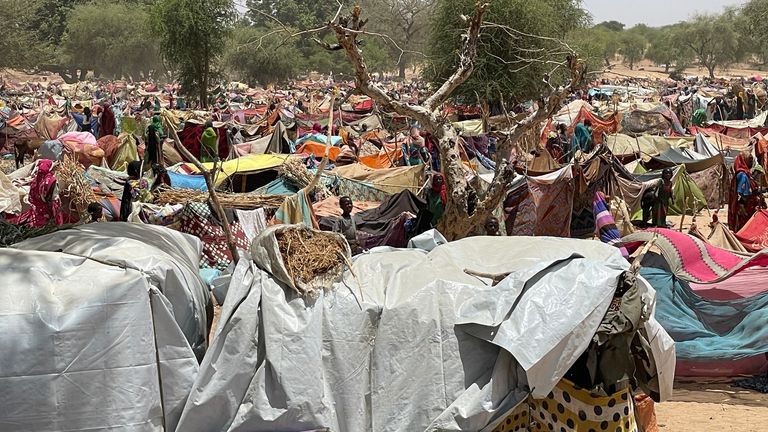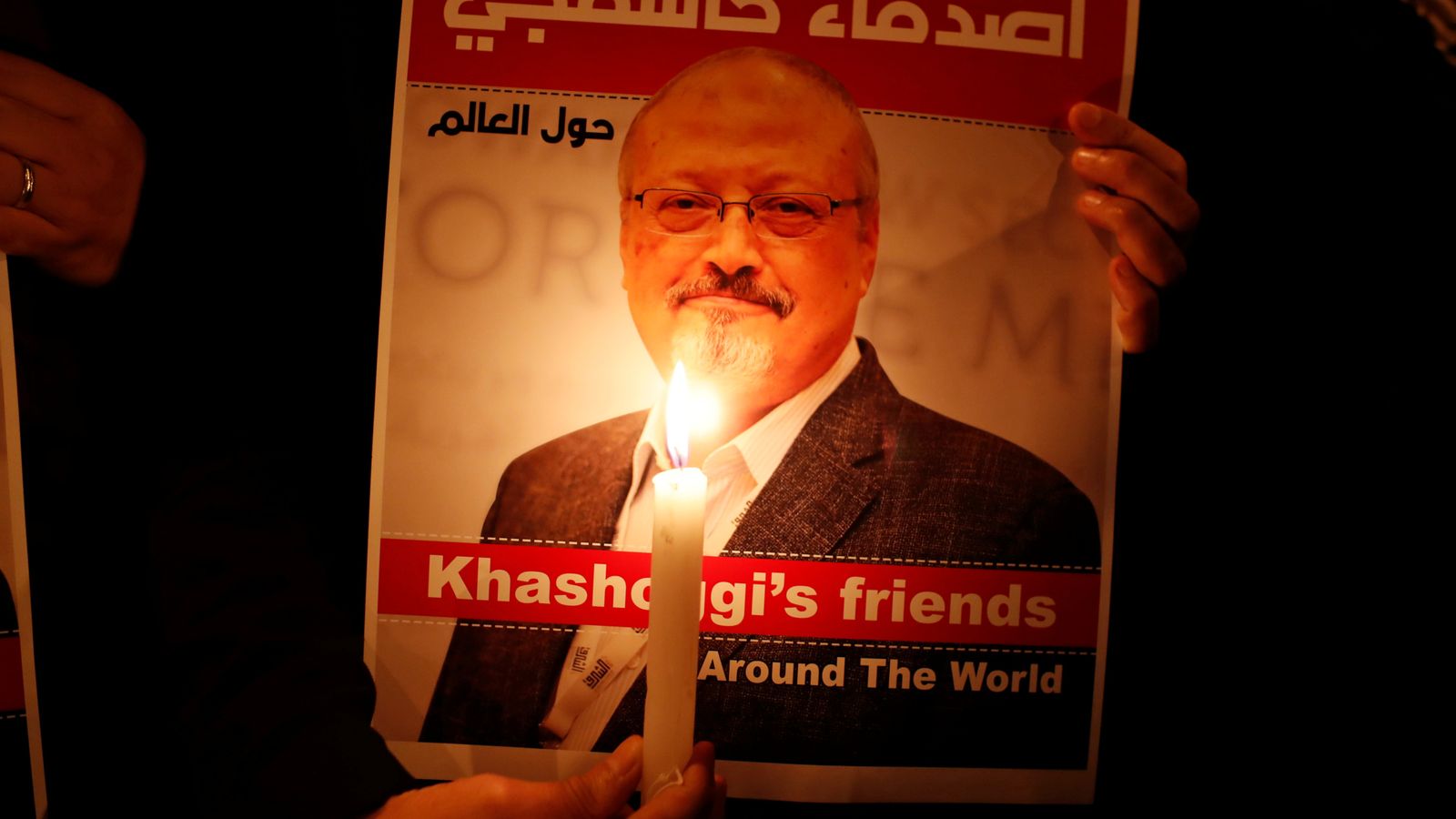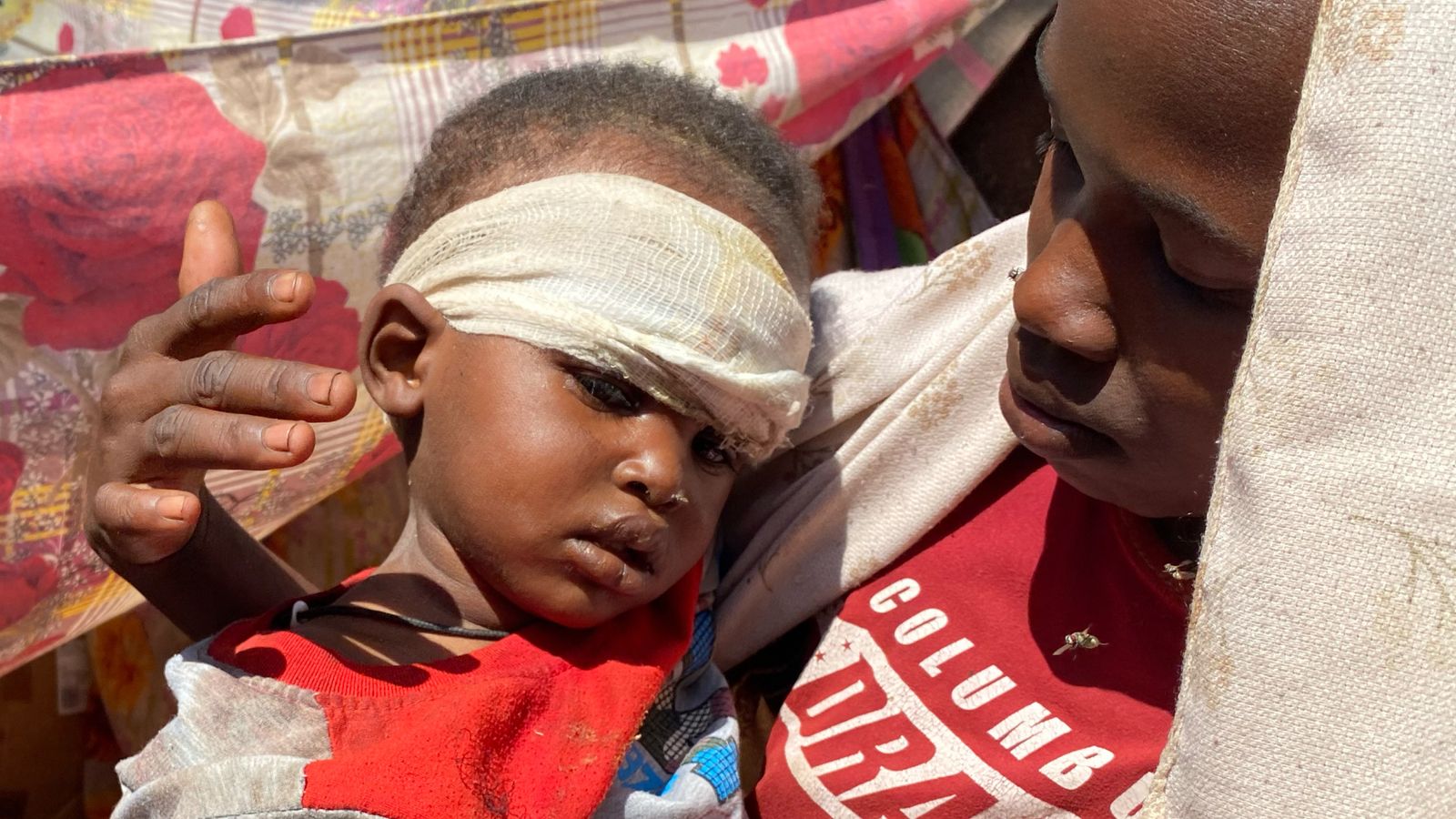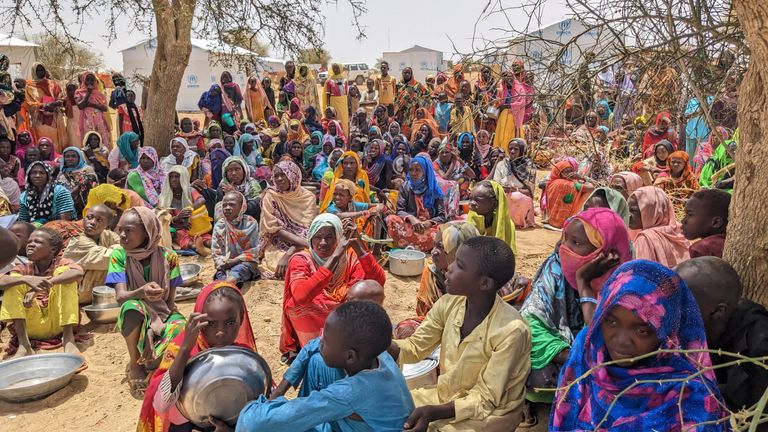
The 41-degree heat rises like steam from every rock and roof but as sunset approaches the sky breaks into a thunderstorm.
A woman, deep in a latrine, pauses her digging to run under a corrugated zinc roof held up by a square wooden frame for shelter from the rain.
It is her new home in an extension of the Farchana refugee camp.
Built in 2003 at the start of the war in Darfur, the site is now expanding to accommodate the latest wave of people fleeing violence.
Around 90,000 refugees have come to eastern Chad, seeking safety from the conflict in Sudan.
The deputy representative for the United Nations refugee agency (UNHCR) in Chad, Patrice Ahouansou, is expecting 10,000 more to come to Farchana alone because of the ongoing crisis.
“Some of them are internally displaced persons in Sudan and are crossing now to seek asylum in Chad, others were here before as refugees, went back and have come back again as refugees,” he said.
According to the UNHCR, 85,000 people have fled to Chad from al Geneina – the state capital of West Darfur and an epicentre of conflict.
The city has been in darkness for more than a week due to a telecommunications blackout and many residents are trapped.
Door-to-door attacks by militias backed by the Rapid Support Forces (RSF) – the group in conflict with Sudan’s government – have been reported.
The only information is coming from those who have managed to get out.
‘They set us on fire and took everything’
Suad Ramadan Abdullah has just arrived at the Gaga camp in Chad from Muli in Sudan – a village just south of the city and not far enough from its searing violence.
“There are clashes, burning and killing in al Geneina,” she said.
“People are not even able to eat or drink.
“They set us on fire and took everything. We came here naked with nothing – not even a bowl for a baby.”
Like others fleeing the state, Suad and her family had to take a long route into Chad as the main road from al Geneina has been plagued by violent attacks recently.
After they arrived, a spillover of violence from the border meant they needed to be relocated after an arduous journey.
“Wherever they move us we are ready because we have small children,” said Muli farmer Abdullah Khatir Ahmed in his seat on the hard hot ground next to Suad.
He added: “We can’t have them come and kill us every time. That is why we came here.”
The war being waged by Sudan’s army against former state security partners the paramilitary RSF has forced more than a million people to flee their homes.
Some 250,000 civilians have crossed into surrounding countries and those remaining are trapped in Khartoum and Darfur.
The people left behind are facing the daily terror of guerrilla warfare and military offensives.
Read more on Sudan crisis:
Scale of destruction in before and after images
UK evacuation ends
Inside war-torn country
The fighting explained
UN envoy on the struggle to de-escalate
‘At this moment, it is intense’
Aisha Azein came to Chad from Konga, another village outside of al Geneina, with her seven children, the youngest of whom is four years old.
“The war has been happening,” she said.
“It has been ongoing but never like this. At this moment it is intense.”
She said the Arab militias brought cows to eat all the crops on their farmland.
At night, they tortured and killed the men.
The RSF was born from these militias – notoriously known as janjaweed, which means “devils on horseback” in local dialect – and was empowered, trained, and funded by the state they are now fighting.
The war has emboldened the tribal militias benefitting from their support in Darfur.
Aisha’s family and other residents from Konga have fled their farmlands to come to Borota, a two-week-old camp that has sprung up out of necessity.
“We won’t go back – not unless there is resolution,” said Aisha’s elderly neighbour, Mohamed.
“We are vulnerable and it is not secure.”

